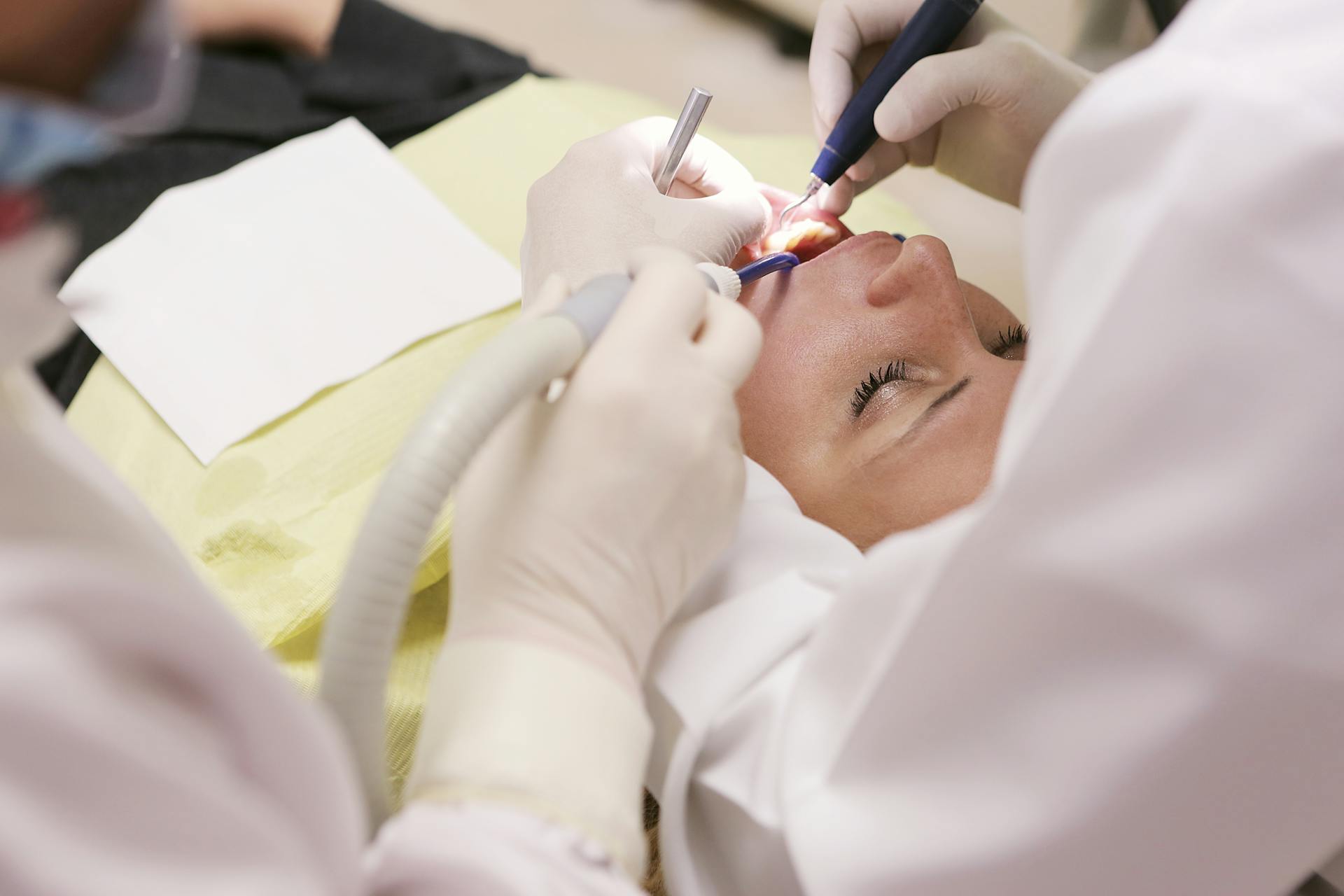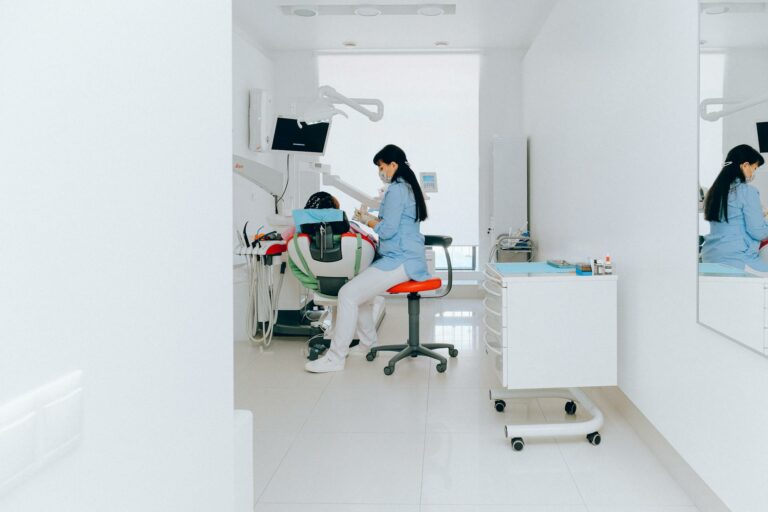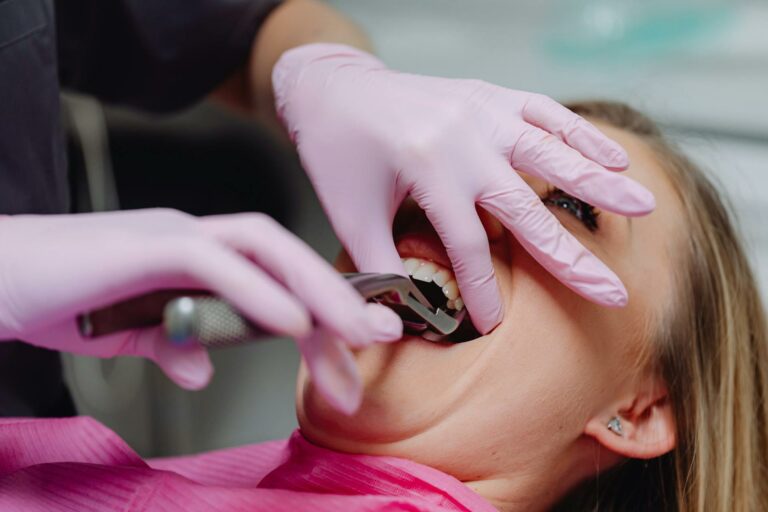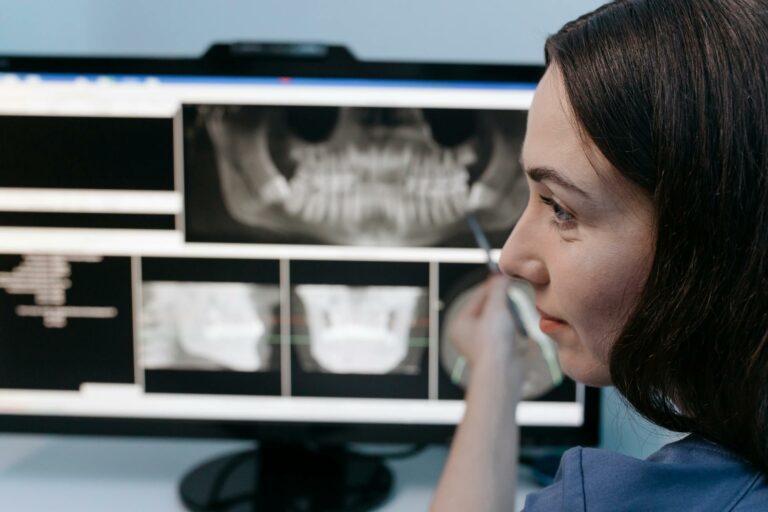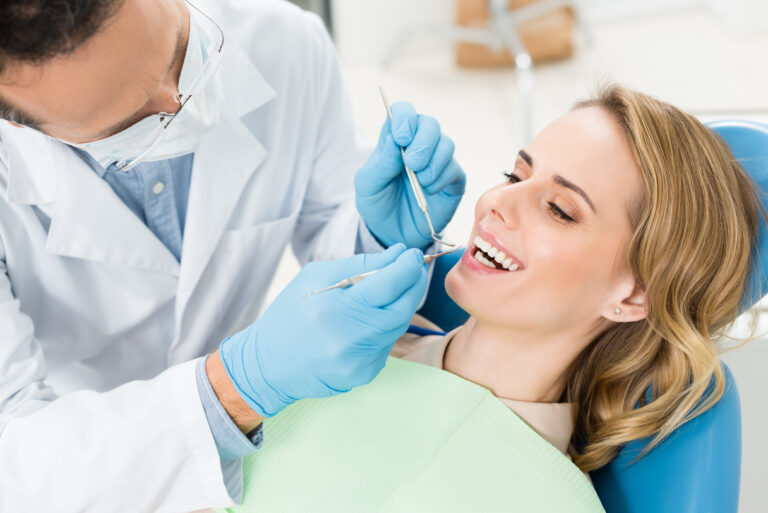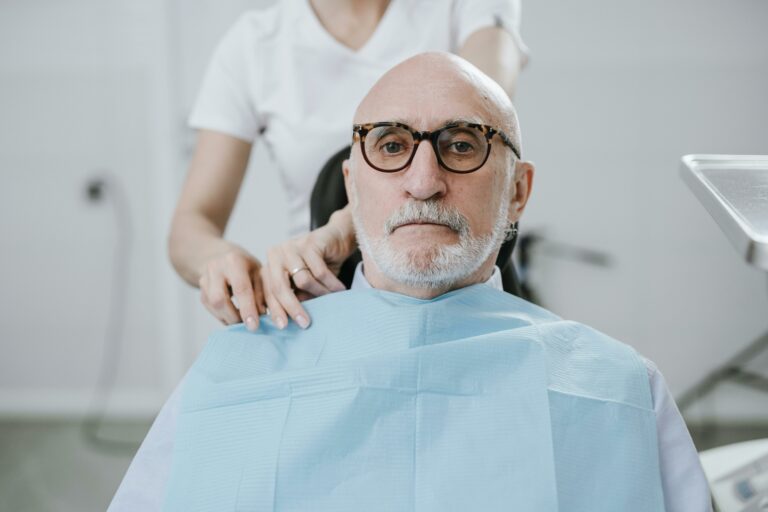Dental Services for Patients With Disabilities in Harlem: Accessible Care Options
Providing dental services to patients with disabilities in Harlem requires a multifaceted approach. By understanding the unique challenges and barriers faced by this population, healthcare providers can develop accessible care options. Mobile dental units and adaptive technologies demonstrate potential in enhancing service delivery and accommodating diverse needs. Specialized training for dental professionals is essential. Such initiatives are important in promoting equitable healthcare access, but how effective are they in practice?
Understanding the Unique Dental Needs of Individuals With Disabilities
While addressing the dental care of individuals with disabilities, it is vital to recognize that their unique needs often require specialized approaches. This population presents unique challenges such as sensory sensitivities, limited mobility, and communication barriers, which necessitate a thorough understanding by dental professionals. Tailored solutions are essential to accommodate these challenges. For instance, clinicians might need to modify their communication methods, employing visual aids or simplified language, to guarantee patient understanding and comfort. Additionally, adaptive equipment may be necessary to facilitate access and positioning during dental procedures. A patient-focused approach, emphasizing empathy and adaptability, is key. This guarantees that dental care is not only effective but also respectful of the individual’s specific needs, ultimately promoting ideal oral health outcomes.
Barriers to Dental Care for People With Disabilities in Harlem
Despite advancements in dental care accessibility, individuals with disabilities in Harlem continue to encounter significant barriers. Transportation challenges are a primary impediment, as many patients rely on public transit systems that are not fully equipped for their needs. The complexity of maneuvering through these systems often results in missed appointments and delayed care. Financial barriers further exacerbate access issues, with a substantial portion of this population experiencing economic hardship. Limited insurance coverage and high out-of-pocket costs create additional obstacles to obtaining necessary dental treatments. Additionally, the scarcity of dental professionals trained in accommodating patients with disabilities compounds these difficulties, leading to suboptimal oral health outcomes. Addressing these multifaceted barriers is essential for enhancing dental care access for this underserved community.
The Role of Mobile Dental Units in Expanding Access
Addressing the complex barriers that individuals with disabilities face in accessing dental care requires innovative solutions. Mobile dental units serve as a pivotal strategy, offering mobile outreach to communities with limited traditional clinic accessibility. These units are equipped with essential dental tools and staffed by trained professionals capable of addressing diverse dental needs. By delivering services directly to patients’ locations, mobile dental units mitigate transportation challenges, a common barrier for disabled individuals. This approach not only enhances accessibility but also fosters patient empowerment by providing personalized care in familiar environments. Such initiatives guarantee that dental health is not compromised by physical or logistical limitations, promoting equitable oral healthcare access across Harlem’s underserved populations.
Adaptive Technologies in Modern Dental Clinics
How can modern dental clinics leverage adaptive technologies to improve care for patients with disabilities? One critical approach involves the integration of telehealth innovations, which enables remote consultations and pre-visit assessments, thereby minimizing in-clinic time for patients with mobility challenges. Additionally, clinics are increasingly incorporating ergonomic designs tailored to accommodate diverse physical needs. These designs include adjustable dental chairs and operatories that allow easy transfer from wheelchairs, ensuring patient comfort and accessibility during treatment. Modern clinics also utilize specialized equipment, such as intraoral cameras, to enhance diagnostic accuracy without requiring extensive physical manipulation. By adopting these adaptive technologies, dental facilities in Harlem can provide patient-focused care that addresses the unique needs of those with disabilities, ultimately enhancing their overall dental experience.
Training Dental Professionals for Inclusive Care
Effective training of dental professionals in inclusive care necessitates specialized training programs that address the unique needs of patients with disabilities. Emphasis on enhancing communication skills is paramount to facilitate patient understanding and comfort during dental procedures. Additionally, proficiency in the use of adaptive equipment guarantees that dental care is both accessible and tailored to individual patient requirements.
Specialized Training Programs
Numerous dental professionals are increasingly recognizing the significance of specialized training programs designed to enhance their ability to provide inclusive care for patients with disabilities. These programs incorporate specialized curricula aimed at developing competencies in treating diverse patient populations with varying needs. Through these specialized curricula, dental practitioners gain in-depth knowledge of adaptive equipment and techniques essential for inclusive practices. Furthermore, these programs emphasize understanding the unique oral health challenges faced by individuals with disabilities, thereby fostering a more patient-focused approach. Practical modules often include simulations and case studies to guarantee dental professionals are equipped to implement inclusive practices effectively. Ultimately, such training is crucial in mitigating barriers to oral healthcare access, promoting equitable treatment, and improving overall patient outcomes within the Harlem community.
Communication Skills Enhancement
Mastering communication skills is essential for dental professionals aiming to deliver inclusive care for patients with disabilities. Effective communication enhances patient comfort and compliance, promoting better oral health outcomes. Active listening is a critical component, allowing practitioners to fully understand patient concerns, preferences, and needs. This involves giving undivided attention, interpreting verbal and non-verbal cues, and responding appropriately to patient feedback.
Visual communication also plays a pivotal role, especially for patients with auditory impairments or cognitive disabilities. Utilizing diagrams, visual aids, and clear gestures can bridge communication gaps, ensuring information is conveyed effectively. Training dental professionals in these skills fosters an inclusive environment, accommodating diverse communication needs, and ultimately improving patient satisfaction and care efficacy.
Adaptive Equipment Usage
Building on the foundation of enhanced communication skills, the utilization of adaptive equipment is a cornerstone in delivering dental services to patients with disabilities. Training dental professionals to proficiently employ adaptive tools and implement equipment modifications is vital for inclusive care. These tools, such as specialized dental chairs and modified instruments, facilitate accessibility and guarantee patient comfort. For instance, adjustable headrests and adaptive seating arrangements accommodate varying physical needs, enhancing procedural efficiency and safety. Additionally, modified handpieces with ergonomic designs allow for precision in treatment while minimizing strain on both patients and practitioners. Thorough training programs focusing on these adaptive technologies are essential in equipping dental professionals to meet the diverse needs of patients with disabilities, ultimately promoting equitable oral healthcare access.
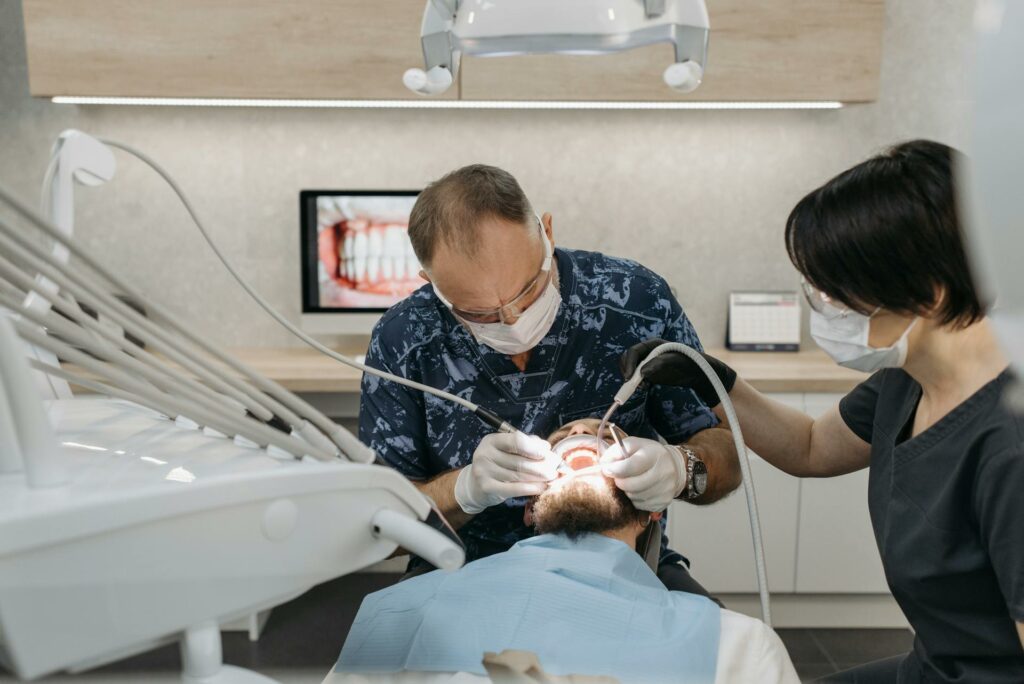
Community Initiatives Supporting Dental Health Equity
Recognizing the significant barriers faced by individuals with disabilities in accessing dental care, community initiatives are increasingly focusing on promoting dental health equity. These programs emphasize community outreach and health education to enhance oral health literacy among patients with disabilities. By deploying mobile dental clinics and hosting inclusive educational workshops, organizations aim to reduce disparities in dental service accessibility. Tailored health education programs are designed to accommodate diverse learning needs, ensuring that individuals understand the importance of oral hygiene and preventive care. Additionally, outreach efforts are directed towards caregivers and families, equipping them with the necessary skills to support the dental health of their loved ones. Such initiatives endeavor to create a more inclusive environment, fostering equitable dental care access in Harlem.
Collaborations Between Healthcare Providers and Disability Advocates
In the pursuit of enhancing dental care accessibility for individuals with disabilities, collaborations between healthcare providers and disability advocates play a pivotal role. Advocacy partnerships foster a patient-centered approach, ensuring that dental services align with the unique needs of this demographic. Collaborative initiatives between these entities focus on integrating specialized training for dental practitioners, enhancing their competency in managing patients with diverse disabilities. Additionally, these alliances aim to streamline referral processes, ensuring timely and thorough care. By establishing robust communication channels, both providers and advocates can address systemic barriers, such as physical accessibility and financial constraints, thereby facilitating equitable access to oral healthcare. Ultimately, these partnerships are essential in advancing health outcomes and improving the quality of life for patients with disabilities in Harlem.
Success Stories From Patients and Practitioners
While the integration of specialized dental care for individuals with disabilities poses numerous challenges, numerous success stories highlight the transformative impact of tailored interventions. Patient testimonials from Harlem underscore the efficacy of adaptive techniques and personalized care plans. One patient reported significant anxiety reduction during dental visits due to sensory-friendly environments. Practitioners’ insights reveal that customized communication strategies, such as visual aids and simplified instructions, have enhanced patient compliance and outcomes. A practitioner noted improvements in oral health metrics among patients with autism spectrum disorder through desensitization protocols. These success stories emphasize the importance of practitioner adaptability and patient-centered approaches. By addressing unique needs, dental professionals in Harlem are fostering a more inclusive environment, resulting in improved patient satisfaction and health outcomes.
The Future of Inclusive Dental Care in Harlem
The trajectory of inclusive dental care in Harlem is set to evolve considerably with emerging technologies and enhanced training programs. Telehealth consultations are anticipated to transform accessibility, allowing patients with disabilities to receive expert advice without the barriers of physical travel. This innovation facilitates early detection and management of oral health issues, ensuring timely interventions. Additionally, preventive education will play an essential role in empowering patients, equipping them with knowledge to maintain optimal oral hygiene independently. Dental professionals will benefit from specialized training, focusing on accommodating unique patient needs, thereby improving clinical outcomes. By integrating advanced methodologies and patient-centered approaches, the future of dental care in Harlem aims to reduce disparities and promote equitable health care access for all individuals.
Frequently Asked Questions
How Can Families Find Specialized Dental Care for Children With Disabilities in Harlem?
Families seeking specialized dental care for children with disabilities in Harlem can explore specialized clinics and utilize community resources. Networking with local healthcare providers and accessing disability support organizations can facilitate finding appropriate patient-focused dental services.
Are There Any Insurance Plans That Cover Dental Services for Disabled Individuals?
Insurance coverage for dental services for disabled individuals often includes specific dental benefits tailored to their needs. Patients should examine plan details closely to guarantee thorough coverage, including preventative, restorative, and emergency dental care provisions.
What Are the Costs Associated With Accessible Dental Care for Disabled Patients?
The costs associated with accessible dental care for disabled patients can vary. Affordable treatments may be available, with financial assistance options potentially reducing out-of-pocket expenses. Clinicians should provide detailed cost breakdowns to guarantee patient-centered financial planning.
How Can Caregivers Assist in Maintaining Oral Health for Individuals With Disabilities?
Caregivers play essential roles in promoting oral hygiene for individuals with disabilities by implementing adaptive techniques, facilitating regular dental visits, and utilizing specialized tools to enhance brushing efficacy, ensuring thorough oral health management for these patients.
Are There Any Support Groups for Families of Individuals With Disabilities Seeking Dental Care?
Support networks, including local organizations and online forums, provide caregiver resources for families seeking dental care for individuals with disabilities. These platforms facilitate knowledge exchange, offer clinical insights, and foster patient-focused strategies to enhance oral health management.
